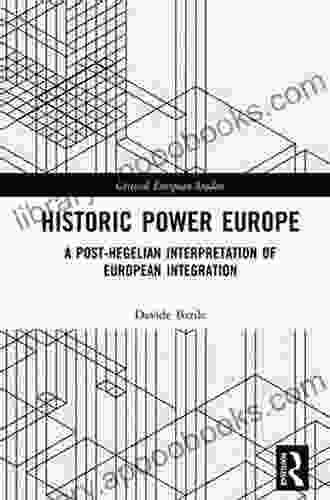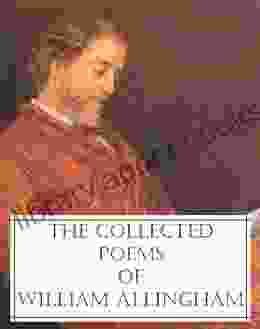Post-Hegelian Interpretation of European Integration: Critical European Studies

The European Union (EU),a formidable alliance of 27 member states, has profoundly shaped the political, economic, and social landscape of Europe. However, the intricate dynamics of European integration have sparked a vibrant academic discourse, particularly within the realm of Critical European Studies. This article delves into the post-Hegelian interpretation of European integration, unveiling the transformative insights it offers into the EU's complexities.
5 out of 5
| Language | : | English |
| File size | : | 1766 KB |
| Text-to-Speech | : | Enabled |
| Screen Reader | : | Supported |
| Enhanced typesetting | : | Enabled |
| Word Wise | : | Enabled |
| Print length | : | 192 pages |
| X-Ray for textbooks | : | Enabled |
Post-Hegelianism and European Integration
Post-Hegelianism, a philosophical perspective rooted in the ideas of German philosopher G.W.F. Hegel, challenges the notion of a monolithic, static reality. It emphasizes the dynamic interplay of power, knowledge, and discourse in shaping social and political structures. Applied to European integration, post-Hegelianism provides a lens to dissect the EU's evolution, its internal power dynamics, and its impact on European societies.
Post-Hegelian scholars argue that European integration is not a linear, teleological process towards a fully integrated Europe. Rather, it is a contested terrain, marked by continual struggles for hegemony and resistance. The EU is not a monolithic entity, but a complex interplay of diverse interests, ideologies, and power relations.
Critical European Studies
Critical European Studies, an interdisciplinary field of scholarship, draws upon post-Hegelian theories to critically examine the EU. It seeks to unravel the hidden power structures, discursive practices, and ideological underpinnings that shape European integration. Critical European Studies scholars question the dominant narratives of European integration, exposing the contradictions, tensions, and exclusions that lie beneath its façade of unity.
Discourse and Hegemony in the EU
Post-Hegelianism underscores the significance of discourse in shaping social reality. Discourse, according to post-Hegelian thinkers, is not merely a neutral means of communication, but a powerful tool for constructing meaning, establishing norms, and exercising power. In the context of European integration, discourse plays a crucial role in legitimizing the EU and its policies.
Critical European Studies scholars analyze the dominant discourses surrounding the EU, such as the discourse of "Europeanness" or the discourse of "progress." They argue that these discourses are not objective truths, but rather constructed narratives that serve to maintain the EU's hegemony. By identifying the power relations embedded in these discourses, post-Hegelian scholarship exposes the ways in which the EU constructs its legitimacy and marginalizes dissenting voices.
Power and Resistance
Post-Hegelianism also emphasizes the interplay of power and resistance. Hegemony, according to post-Hegelian thinkers, is not a static condition but a dynamic process that is constantly challenged and contested. In the EU context, post-Hegelian scholars investigate the power dynamics shaping European integration. They examine how dominant interests, such as those of powerful member states or transnational corporations, influence EU decision-making.
However, post-Hegelianism also acknowledges the existence of resistance to hegemony. Critical European Studies scholars highlight the role of social movements, civil society organizations, and other actors in challenging the dominant discourses and power structures surrounding the EU.
Postmodernism and Post-Structuralism
Post-Hegelianism shares affinities with postmodern and post-structuralist theories. Postmodernism questions the grand narratives of modernity, while post-structuralism deconstructs the binary oppositions that structure our understanding of the world. These theories have influenced the ways in which post-Hegelian scholars approach the study of European integration.
Postmodernist and post-structuralist insights have led to a critical examination of the foundational concepts of European integration. Critical European Studies scholars problematize the notions of "Europe," "integration," and "identity." They argue that these concepts are not fixed and immutable, but rather fluid and contested.
Implications for European Integration
The post-Hegelian interpretation of European integration has profound implications for our understanding of the EU and its future. Post-Hegelianism challenges the simplistic narratives of European integration and uncovers its complex and contested nature. Critical European Studies provides a toolkit for critically engaging with the EU, its institutions, and its policies.
The insights of post-Hegelianism and Critical European Studies are particularly relevant in the current context of the EU. The EU is facing numerous challenges, including the rise of populism, the Brexit crisis, and the ongoing COVID-19 pandemic. A post-Hegelian perspective can help us navigate these challenges by providing a deeper understanding of the power dynamics, discursive practices, and ideological underpinnings that shape the EU.
The post-Hegelian interpretation of European integration offers a valuable lens for understanding the complexities of the EU and the challenges it faces. Through its focus on discourse, power, and resistance, post-Hegelianism provides a framework for critically engaging with the EU and its implications for European societies. Critical European Studies, rooted in post-Hegelian theory, empowers us to question dominant narratives, challenge power structures, and envision alternative futures for Europe.
By embracing a post-Hegelian perspective, we can foster a more nuanced and informed understanding of European integration, enabling us to navigate the complexities of the EU and contribute to its future evolution.
5 out of 5
| Language | : | English |
| File size | : | 1766 KB |
| Text-to-Speech | : | Enabled |
| Screen Reader | : | Supported |
| Enhanced typesetting | : | Enabled |
| Word Wise | : | Enabled |
| Print length | : | 192 pages |
| X-Ray for textbooks | : | Enabled |
Do you want to contribute by writing guest posts on this blog?
Please contact us and send us a resume of previous articles that you have written.
 Book
Book Novel
Novel Page
Page Chapter
Chapter Text
Text Story
Story Genre
Genre Reader
Reader Library
Library Paperback
Paperback E-book
E-book Magazine
Magazine Newspaper
Newspaper Paragraph
Paragraph Sentence
Sentence Bookmark
Bookmark Shelf
Shelf Glossary
Glossary Bibliography
Bibliography Foreword
Foreword Preface
Preface Synopsis
Synopsis Annotation
Annotation Footnote
Footnote Manuscript
Manuscript Scroll
Scroll Codex
Codex Tome
Tome Bestseller
Bestseller Classics
Classics Library card
Library card Narrative
Narrative Biography
Biography Autobiography
Autobiography Memoir
Memoir Reference
Reference Encyclopedia
Encyclopedia Patrick L Tonnard
Patrick L Tonnard Josh Alan Friedman
Josh Alan Friedman John Lamb
John Lamb John Slavio
John Slavio Michael Bremer
Michael Bremer Juergen Pintaske
Juergen Pintaske Phil Croucher
Phil Croucher John L Offner
John L Offner Francis J Gavin
Francis J Gavin Rusty Humphries
Rusty Humphries Sandy Appleyard
Sandy Appleyard John Fitzsimmons
John Fitzsimmons Josh Sutton
Josh Sutton Stewart Alsop
Stewart Alsop Joscelyn Godwin
Joscelyn Godwin Page Zaplendam
Page Zaplendam Rafael Campo
Rafael Campo Laura Howard
Laura Howard John B Manbeck
John B Manbeck Jonathan S Burgess
Jonathan S Burgess
Light bulbAdvertise smarter! Our strategic ad space ensures maximum exposure. Reserve your spot today!
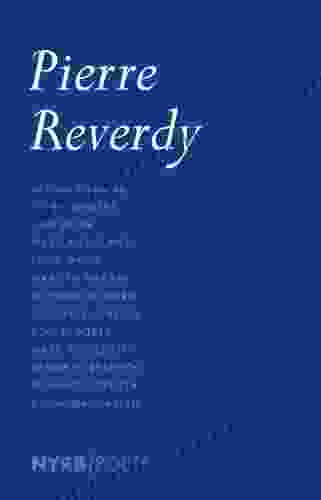
 Kendall WardPierre Reverdy: A Poetic Enigma Explored in the Translated Collection "Pierre...
Kendall WardPierre Reverdy: A Poetic Enigma Explored in the Translated Collection "Pierre...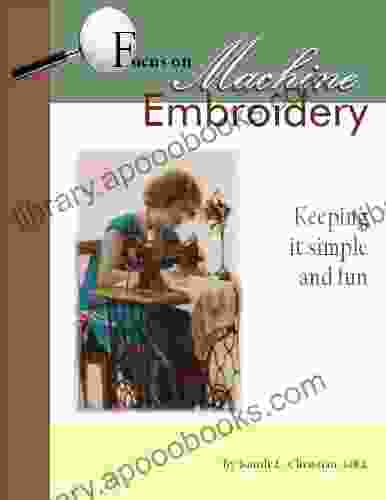
 William PowellUnveiling the Enchanting World of Machine Embroidery with Focus On Machine...
William PowellUnveiling the Enchanting World of Machine Embroidery with Focus On Machine... Jackson HayesFollow ·11.3k
Jackson HayesFollow ·11.3k Duane KellyFollow ·11.9k
Duane KellyFollow ·11.9k Noah BlairFollow ·5.6k
Noah BlairFollow ·5.6k Blake KennedyFollow ·6.1k
Blake KennedyFollow ·6.1k Neal WardFollow ·19.7k
Neal WardFollow ·19.7k Ernesto SabatoFollow ·11.2k
Ernesto SabatoFollow ·11.2k Darrell PowellFollow ·10.8k
Darrell PowellFollow ·10.8k Max TurnerFollow ·6.9k
Max TurnerFollow ·6.9k

 Tyler Nelson
Tyler NelsonHer Dragon to Slay: Embark on an Epic Journey of...
In a realm where shadows dance and legends...
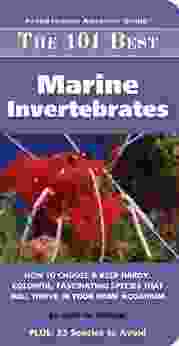
 Zachary Cox
Zachary Cox101 Best Marine Invertebrates: The Adventurous Aquarist's...
Unveiling the Enchanting Realm...
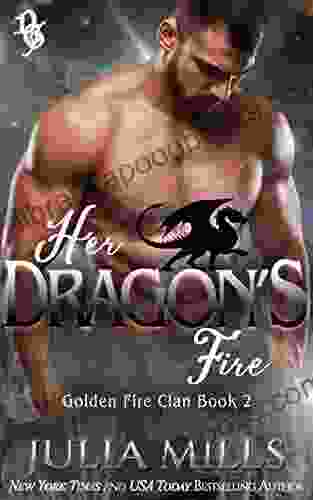
 William Wordsworth
William WordsworthHer Dragon Fire: Unleash the Power Within Your Soul
Embark on an...

 William Powell
William PowellUnveiling the Enchanting World of Machine Embroidery with...
Embroidery, an ancient art form that has...

 Will Ward
Will WardGolden Fire Clan Dragon Guard: A Journey into a Realm of...
Prepare to be...

 Gustavo Cox
Gustavo CoxProject Ideas to Elevate Your Hobbies and Flourish Your...
<p>Welcome to the ultimate guide to...
5 out of 5
| Language | : | English |
| File size | : | 1766 KB |
| Text-to-Speech | : | Enabled |
| Screen Reader | : | Supported |
| Enhanced typesetting | : | Enabled |
| Word Wise | : | Enabled |
| Print length | : | 192 pages |
| X-Ray for textbooks | : | Enabled |


